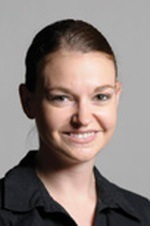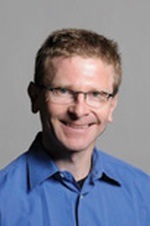A leader in interdisciplinary research that addresses organizations, policy and interactions among the sectors of civic society, the Faculty of Public Affairs is committed to ensuring an outstanding learning experience for its students. Here’s what some of the newest teachers and researchers in our dynamic faculty are working on.

Evelyn Maeder, assistant professor, institute of criminology and criminal justice
Though courts of law strive for an impartial environment in which to present cases, the biases, beliefs, experiences and comprehension of jurors create a filter through which information is understood. Maeder’s research into discrimination in the law focuses on the effect defendants have on jury decision making. Conducting online surveys and experimental research using mock trials, Maeder examines what information jurors pay attention to in reaching their decisions and the influence of a defendant’s race or gender on the decision.
Maeder’s previous research examined U.S. legal policy on sexual harassment, affirmative action and disability. After completing her graduate work in law and psychology in the U.S., she is keen to examine differences with the Canadian legal system and how they affect outcome and public opinion. “The Charter of Rights and Freedoms and the U.S. Constitution differ in a number of ways,” she says. “I’d like to explore those differences and their effects on outcomes in discrimination cases, as well as their correspondence with public policy.”

Hans-Martin Jaeger, assistant professor, department of political science
References to “world opinion” are common in discourse on U.S. foreign policy and international politics, such as President Bush’s references that Saddam Hussein had defied world public opinion in making his case for the war against Iraq. Arguments against the war also claim Bush acted in defiance of public opinion. In these contexts, world opinion is seen as an authority that should restrain sovereign states and their leaders, and that bestows or denies legitimacy in international politics. It is supposed to reflect a moral consensus.
Because it is meaningful to decision makers, world opinion must be seen as more than justification for a government’s actions or an ideal concept leading to peace and democracy. Jaeger approaches the topic of public opinion in the context of contemporary and historical global governance. He looks at what government projects have been put on the agenda in the name of world opinion, notably the creation of the League of Nations in 1919 and the founding of the United Nations in 1945. Drawing on the theories of Foucault and Luhmann, Jaeger challenges ideas about public opinion, examining the academic, policy expert and conference participant discourse in the years leading up to the creation of these world bodies.
The Faculty of Public Affairs also welcomes:
Nicolas Carrier, assistant professor, institute of criminology and criminal justice; Ana Dammert, assistant professor, department of economics; Ummni Khan, assistant professor, department of law; Jose Galdo, assistant professor, school of public policy and administration; James Milner, assistant professor, department of political science; Zoran Oklopcic, assistant professor, department of law; and Raul Razo-Garcia, department of economics.
Next …